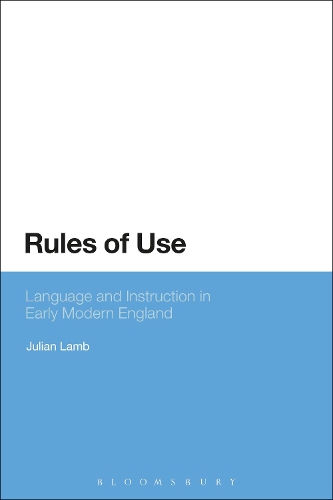
Rules of Use: Language and Instruction in Early Modern England
(Hardback)
Available Formats
Publishing Details
Rules of Use: Language and Instruction in Early Modern England
By (Author) Julian Lamb
Bloomsbury Publishing PLC
Bloomsbury Academic
28th August 2014
United Kingdom
Classifications
Tertiary Education
Non Fiction
428.009031
Physical Properties
Hardback
200
Width 156mm, Height 234mm
474g
Description
We take it for granted that we can use words properly appropriately, meaningfully, even decorously. And yet it is very difficult to justify or explain what makes a particular use "proper." Given that properness is determined by the unpredictable vagaries of unrepeatable contexts, it is impossible to formulate an absolute rule which tells what is proper in every situation. In its four case studies of texts by Ascham, Puttenham, Mulcaster, and the first English dictionary writers, Rules of Use shows the way in which early modern pedagogues attempted to articulate such a rule whilst being mindful that proper use can neither be determined by any single rule, nor definitively described in examples. Using the philosophy of Ludwig Wittgenstein, and Stanley Cavells influential reading of it, Rules of Use argues that early modern pedagogues became entangled in a sceptical problem: aspiring to formulate a definitive rule of proper use, their own instruction begins to appear uncertain and lacking in assurance when they find such a rule cannot be expressed.
Reviews
Lambs discussion of the complexities of humanist pedagogy and the limits of rules is illuminating. -- Graham Hammill * SEL Winter 56, 1 *
Author Bio
Julian Lamb is Assistant Professor of English Literary Studies, Chinese University of Hong Kong
